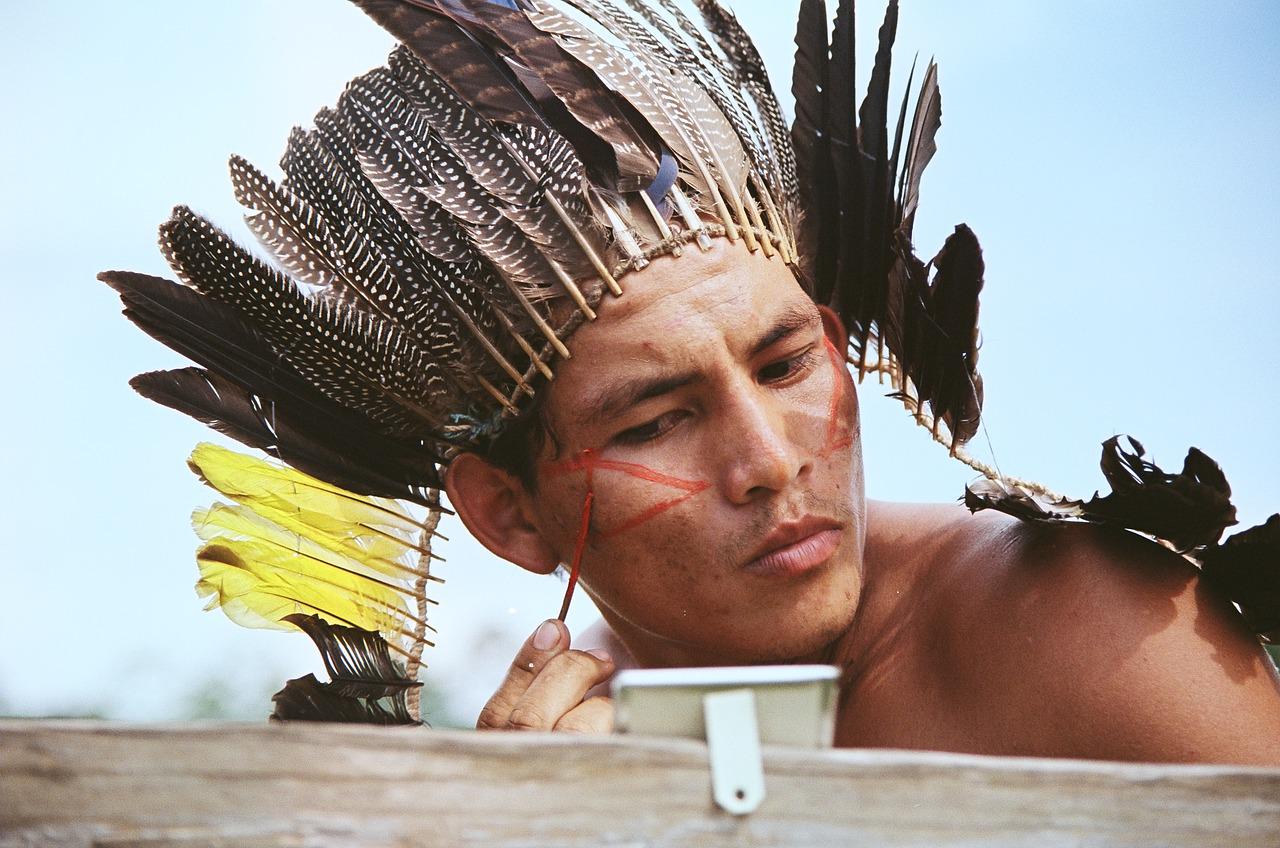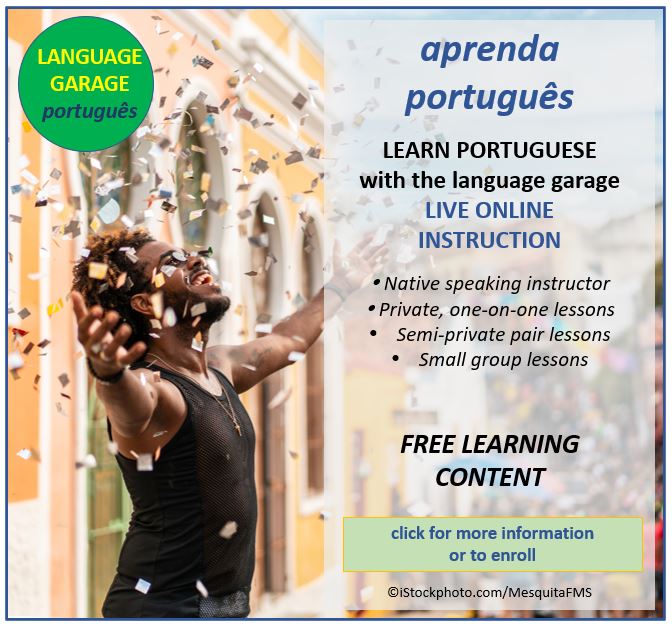Alto ou baixo? Tall or Short? Basic Descriptions of People in Portuguese
In this post we’ll learn some basic descriptions of people in Portuguese. We’ll start with some physical descriptions, so you’ll learn basic adjectives like tall and short. Then we’ll move on to other descriptions of people that aren’t physical, so you’ll learn how to talk about people’s moods and personalities.
Basic Physical Descriptions of People in Portuguese
Let’s start with some basic adjectives that you can use to describe people’s physical characteristics: alto/a tall; baixo/a short; jovem young; velho/a old; gordo/a fat; magro/a thin; lindo/a beautiful; feio/a ugly. Let’s see some examples:
- A mulher é alta / magra.
The woman is tall/ thin. - As mulheres são altas / magras.
The women are tall/ thin . - O homem é baixo / gordo.
The man is short/ fat. - Os homens são baixos / gordos.
The men are short/ fat. - O meu avô é velho. / A minha avó é velha.
My grandfather/My grandmother is old. - O menino é jovem. / A menina é jovem.
The boy is young. / The girl is young. - Temos um filho jovem.
We have a young son.
GRAMMAR TIP!
Did you notice that Portuguese adjectives change forms to agree with the noun they modify? If an adjective modifies a masculine singular noun, o homem (the man) for example, it typically ends in –o. If the noun is masculine plural, os homems (the men) for example, it typically ends in –os.
- O homem é baixo.
The man is short. - Os homens são baixos.
The men are short.
For feminine nouns, just change the -o to -a, and the –os to –as, simple!
- A mulher é baixa.
The woman is short. - As mulheres são baixas.
The women are short.
But did you notice that jovem (young) only has one form in the singular? It’s a bit irregular; in the plural it also only has one form, jovens.
- O menino é jovem. / Os meninos são jovens.
The boy is young. / The boys are young. - A menina é jovem. / As meninas são jovens.
The girl is young. / The girls are young.
Other Basic Descriptions of People in Portuguese
Now let’s see a few more adjectives that describe people’s moods or emotions or other non-physical characteristics: feliz happy; triste sad; inteligente intelligent; tolo/a foolish; interessante interesting; popular popular; esportivo/a sporty, athletic; preguiçoso/a lazy; forte strong; fraco/a weak; corajoso/a brave; tímido/a shy; falador/a talkative; quieto/a quiet; casado/a married; solteiro/a single; simpático/a friendly, nice; antipático/a unfriendly, mean.
- A mulher é inteligente.
The woman is intelligent. - As mulheres são inteligentes.
The women are intelligent. - O homem é forte.
The man is strong. - Ele é um homem forte.
He is a strong man. - Ela é uma mulher forte.
She is a strong woman. - Os homens são fortes.
The men are strong. - A minha irmã é simpática / antipática.
My sister is friendly/ unfriendly. - O meu irmão é simpático / antipático.
My brother is friendly/mean. - A menina é tímida.
The girl is shy. - Nossas filhas são tímidas.
Our daughters are shy. - Você está feliz ou triste?
Are you happy or sad? - O nosso professor / A nossa professora é interessante.
Our teacher is interesting. - Ela é uma cantora popular.
She’s a popular singer. - O / A policial é corajoso/a.
The police officer is brave.
GRAMMAR TIP!
And now you’ve seen a lot of adjectives that end in –e (triste, inteligente, forte, interessante…) These adjectives just have two forms: –e in the singular, and –es in the plural.
- O homem é forte. / Os homens são fortes.
The man is strong. / The men are strong. - A mulher é forte. / As mulheres são fortes.
The woman is strong. / The women are strong.
There’s a bit more to the story of Portuguese adjective agreement, but this will cover the majority of cases for you.
Get on the road to speaking Portuguese with the Language Garage!
We hope you’ve enjoyed learning some basic descriptions of people in Portuguese. If you’d like to learn more, check out our other posts on Portuguese language, Brazilian culture, and more. And if you’re looking for convenient and affordable live Portuguese lessons with a real teacher, check out The Language Garage Portuguese. Our lessons are given online in a virtual classroom, so it doesn’t matter where you live or work. We can come to you. And we have flexible options, with a free trial so that you can decide if there’s a fit. Check us out!
Image by Rodrigo Farhat from Pixabay






